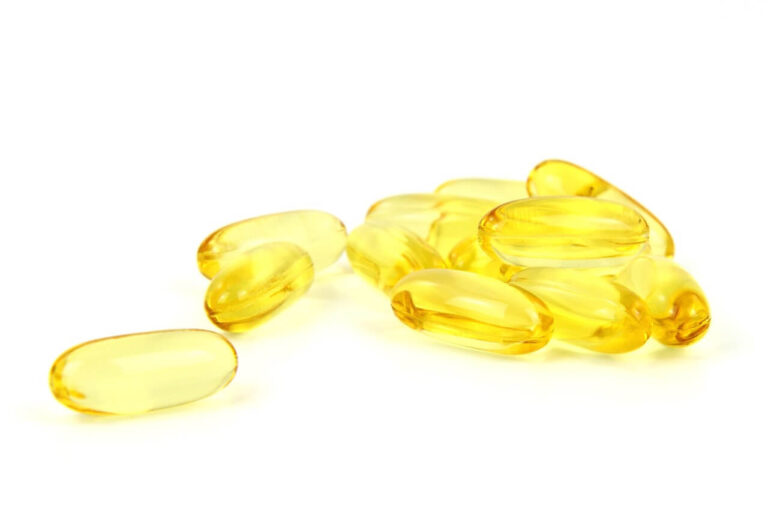Cod Liver Oil vs. Other Fish Oils: Is one better than the other?
Fish oil supplements have gained popularity for their numerous health benefits, particularly their high content of omega-3 fatty acids. Among these supplements, cod liver oil stands out due to its unique nutrient profile. While both cod liver oil and other fish oils provide essential omega-3 fatty acids, they differ in their sources, nutritional content, and specific health benefits. This article explores the differences between cod liver oil and other fish oils, helping you choose the right supplement for your needs.

Understanding Omega-3 Fatty Acids
Omega-3 fatty acids are essential fats that the body cannot produce on its own. They are crucial for maintaining heart health, reducing inflammation, and supporting brain function. The three main types of omega-3 fatty acids are:
- Eicosapentaenoic Acid (EPA): Found in fish oils and known for its anti-inflammatory properties.
- Docosahexaenoic Acid (DHA): Found in fish oils and crucial for brain health.
- Alpha-Linolenic Acid (ALA): Found in plant oils and can be converted into EPA and DHA in the body, although the conversion rate is low.
What is Cod Liver Oil?
Cod liver oil is derived from the liver of codfish. It is rich in omega-3 fatty acids (EPA and DHA), but it also contains significant amounts of vitamins A and D, which are not typically found in other fish oils.
Nutritional Profile of Cod Liver Oil
- Omega-3 Fatty Acids: Provides EPA and DHA, essential for reducing inflammation and supporting heart and brain health.
- Vitamin A: Supports vision, immune function, and skin health.
- Vitamin D: Essential for bone health, immune support, and mood regulation.
What are Other Fish Oils?
Other fish oils, such as those derived from salmon, mackerel, sardines, and anchovies, are extracted from the body tissues of these fish. While they also provide omega-3 fatty acids, they do not contain the high levels of vitamins A and D found in cod liver oil.
Nutritional Profile of Other Fish Oils
- Omega-3 Fatty Acids: High levels of EPA and DHA, beneficial for cardiovascular health, reducing inflammation, and supporting cognitive function.
- Trace Nutrients: May contain small amounts of other nutrients, but not the high levels of vitamins A and D found in cod liver oil.
Key Differences Between Cod Liver Oil and Other Fish Oils
1. Source
- Cod Liver Oil: Extracted from the liver of codfish.
- Other Fish Oils: Extracted from the body tissues of various fish such as salmon, mackerel, sardines, and anchovies.
2. Vitamin Content
- Cod Liver Oil: Contains high levels of vitamins A and D, making it a good choice for individuals needing these vitamins.
- Other Fish Oils: Typically do not contain significant amounts of vitamins A and D.
3. Health Benefits
- Cod Liver Oil: In addition to the benefits of omega-3 fatty acids, the vitamins A and D in cod liver oil support bone health, immune function, and vision.
- Other Fish Oils: Primarily provide the benefits of omega-3 fatty acids, including improved heart health, reduced inflammation, and better brain function.
4. Use Cases
- Cod Liver Oil: Ideal for individuals looking to improve bone health, immune function, and vitamin D levels, particularly in regions with limited sunlight exposure.
- Other Fish Oils: Best for individuals focusing on heart health, reducing inflammation, and supporting cognitive function without the need for additional vitamins A and D.
Potential Side Effects and Considerations
Cod Liver Oil
- Vitamin A Toxicity: High levels of vitamin A can be toxic, so it’s essential to follow recommended dosages and consult with a healthcare provider, especially if taking other supplements containing vitamin A.
- Digestive Issues: Some people may experience digestive discomfort when taking cod liver oil.
Other Fish Oils
- Fishy Aftertaste: Some fish oil supplements may leave a fishy aftertaste or cause burping.
- Digestive Issues: Similar to cod liver oil, fish oils can cause digestive discomfort in some individuals.
How to Choose the Right Fish Oil Supplement
When selecting a fish oil supplement, consider the following factors:
- Nutrient Needs: Determine whether you need the additional vitamins A and D provided by cod liver oil.
- Health Goals: Consider your specific health goals, such as improving heart health, reducing inflammation, or supporting bone health.
- Quality: Choose high-quality supplements from reputable brands that provide third-party testing for purity and potency.
- Dosage: Follow the recommended dosage on the product label or as advised by your healthcare provider.
Both cod liver oil and other fish oils offer significant health benefits, primarily due to their high content of omega-3 fatty acids. Cod liver oil provides the added benefits of vitamins A and D, making it a suitable choice for individuals needing these nutrients. On the other hand, other fish oils are ideal for those focusing on heart health, reducing inflammation, and supporting brain function. By understanding the differences between these supplements, you can make an informed decision to support your overall health and well-being. As always, consult with a healthcare provider before starting any new supplement regimen.
Further Information
https://www.simplysupplements.co.uk/healthylife/infographics/cod-liver-oil-or-omega-3







